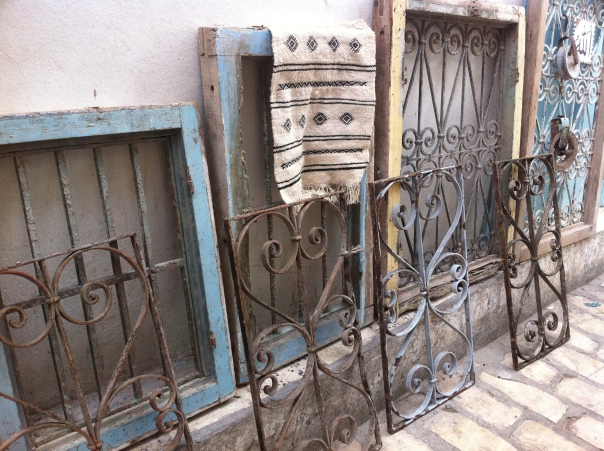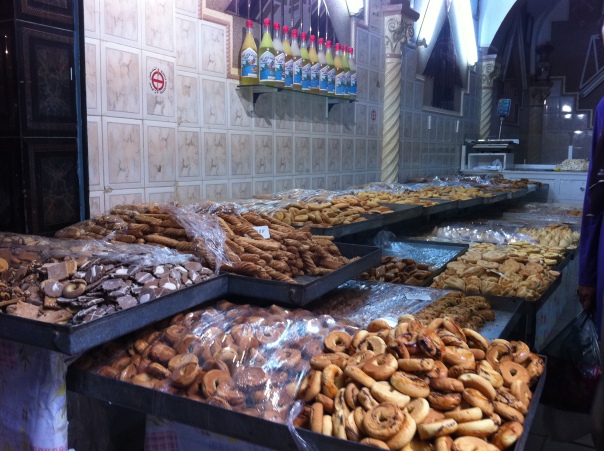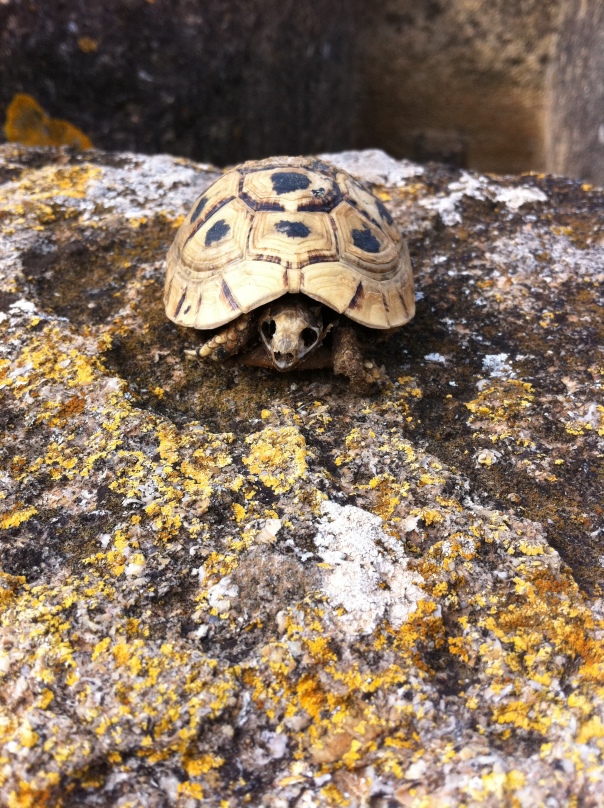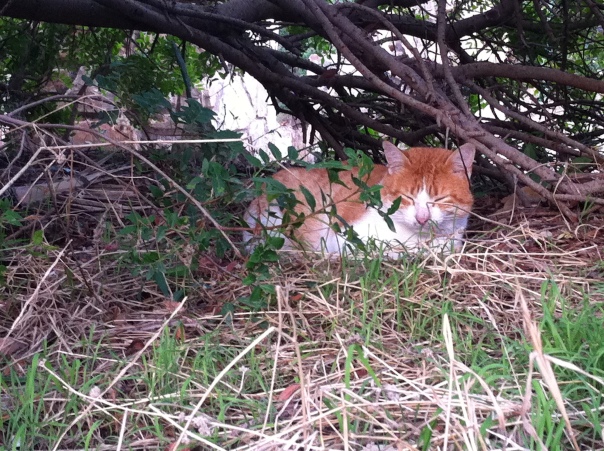
Scavenger cats in my neighborhood.


Trash on a beach in Sounine.


Trash in the neighborhood next to mine. This pile is perpetual. Notice how the cat is next to a bag filled with sheep skin (from after the eid, which will be addressed in a different post).

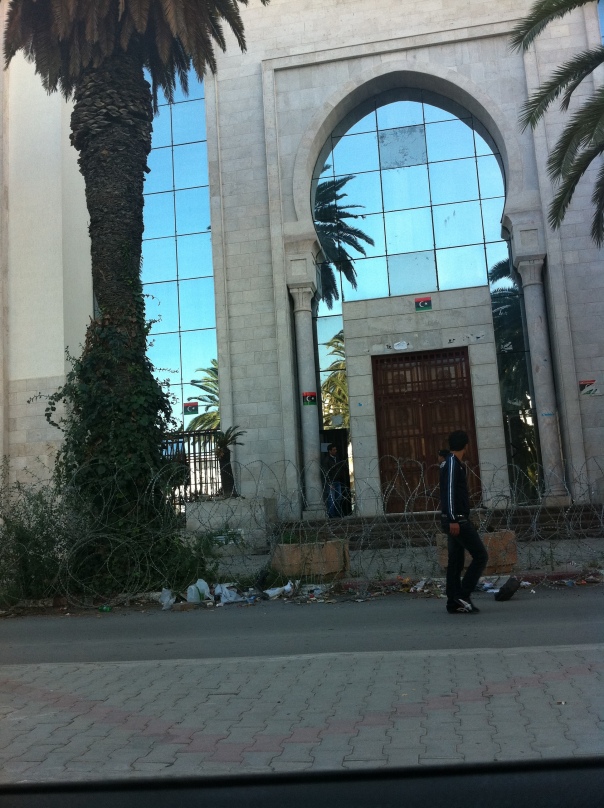
Trash stuck in the razor wire in front of the Libyan embassy. Yes, I was brave enough to snap a few hasty photos! Finally.
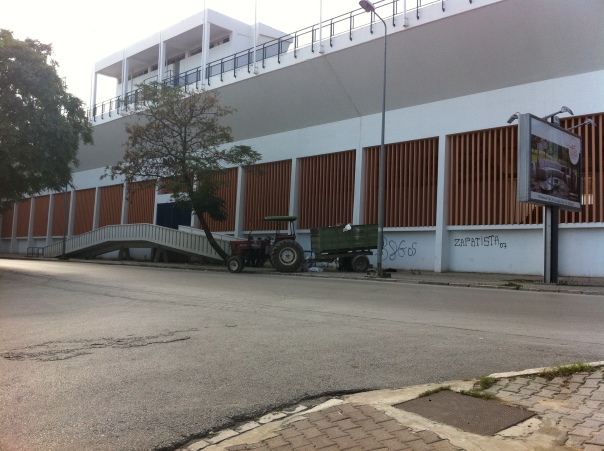
This tractor seems to be the means of collecting yard waste (at least from public places around where I live).


Part of a factory on the outskirts of Gabès.
One of the first field trips we went on in Tunisia, I remember my program director apologizing on behalf of his country, citing excess liter since the revolution. It is true, after the fall of Ben Ali, Tunisia has suffered from many administrative issues, a difficult one to ignore being trash collection. Trash is in the streets and on the beach, in neighborhoods it piles up on the sidewalks, feeding colonies of stray cats who seem to be complacent with the recent abundance of food. After the revolution, dumps, trash collectors and recycling centers have been facing difficulties as a result of the strikes, demonstrations and movements of waste management workers.
While this is an important factor in the large amounts of trash I have been seeing, I cannot help but wonder about waste management during Ben Ali and before and Tunisia’s environmental situation as a whole. Tunisia is a small country where a majority of the population is concentrated in coastal region. Two-thirds of the population (which is between ten and eleven million) live in urban areas.
Tunisia is a semiarid country that faces climatic challenges because of irregular and insufficient rainfall. The already fragile ecosystem (polluted water from raw sewage, limited freshwater resources, deforestation, overgrazing, soil erosion, and desertification) is further burdened with large populations concentrated in sensitive areas (mainly coastal) as well as the pressure placed on the environment when extracting the few natural resources Tunisia possesses.
The trash that caught my attention at first is an indicator of larger issues Tunisia faces at the hand of urbanization (and tourism, which has been a major driver of urbanization). As I’ve seen just about everywhere we’ve gone, tourist institutions come at a price, often generating much needed income while also putting in danger an invaluable environment.
Municipal solid waste in these areas alone requires immediate attention. Trash is often dumped into areas without any form of a sanitary landfill system. Industrial pollution, as we observed on the outskirts of Gabès, is an issue as well because often industrial waste is dumped in sensitive areas along the coast, contributing to further degradation. There are around 66 existing waste disposal sites in Tunisia are uncontrolled (little to no separation prior to collection, meaning that medical and industrial waste is disposed with municipal waste).
The solid waste I am addressing (both municipal and industrial) has been a heavy burden on Tunisia for appropriate management of such waste, the mobilization of such considerable material, requires specialized human resources, techniques and technology. Not to mention space.
Due to population growth and urban expansion, problems related to solid waste management have increased, as noted by people such as myself or my program director who observe increased amounts of trash everywhere. The main issues that arise are at the collection and disposal level (two areas that have obviously been further impacted since the January 14th revolution).
However despite all of the negativity, Tunisia has many positive factors in the realm of waste management. For example, there are laws, assistance and investments in the field of waste management, the provision of necessary finances, as well as the actual existence of landfills and a waste agency.
The negatives, such as lack of treatment for solid waste and lack of trained personnel and methods for operating landfills, seem to be problems that can be addressed in a post Ben Ali era. People are aware of the improvements needed and hopefully with administrative support that will come from a functioning government, that support will be provided.
Look forward to some posts featuring pristine Tunisian landscapes, coming soon!

